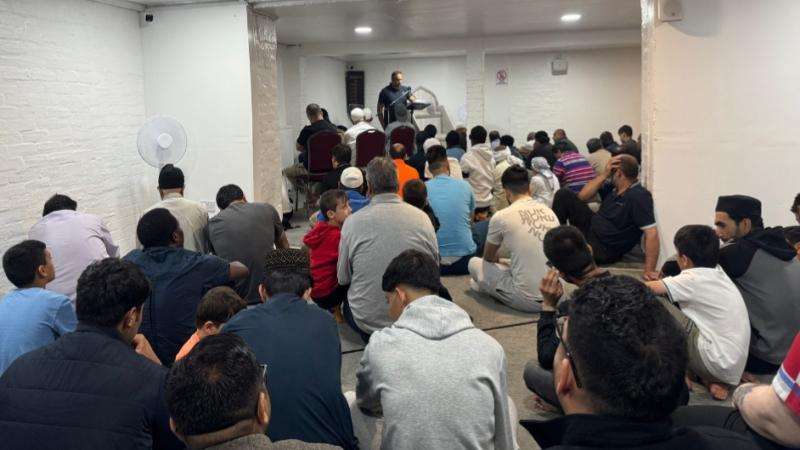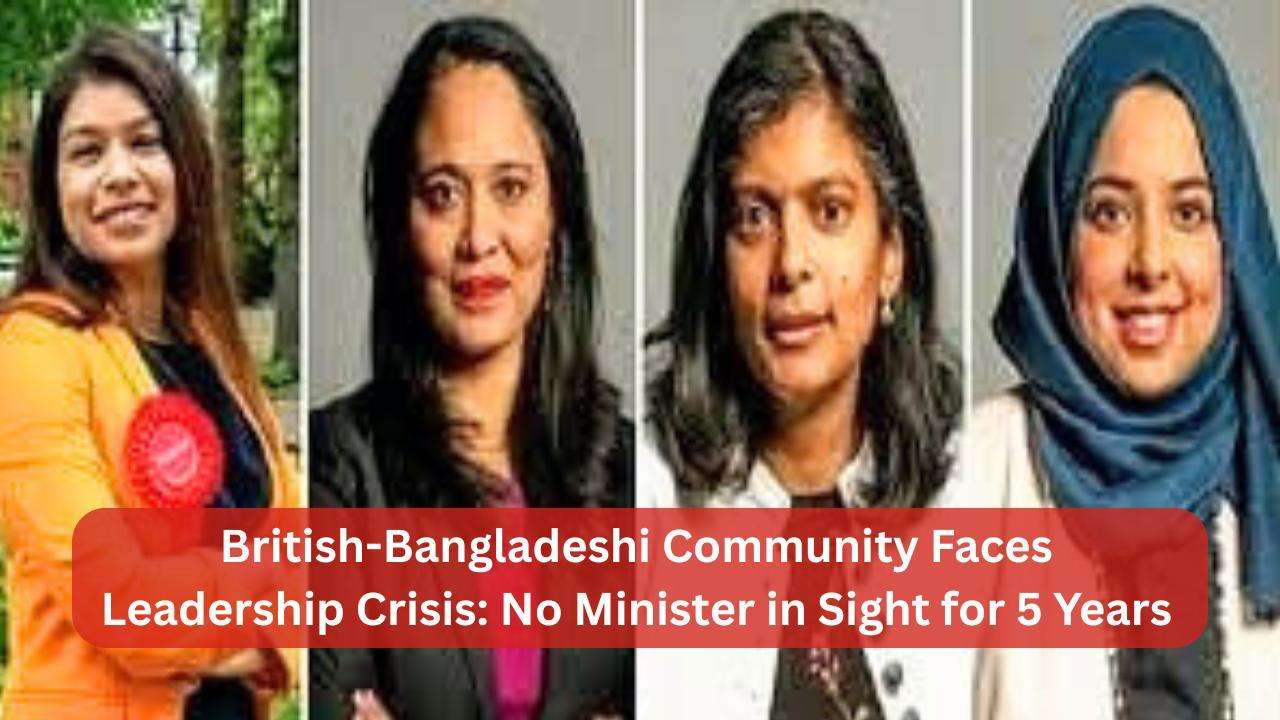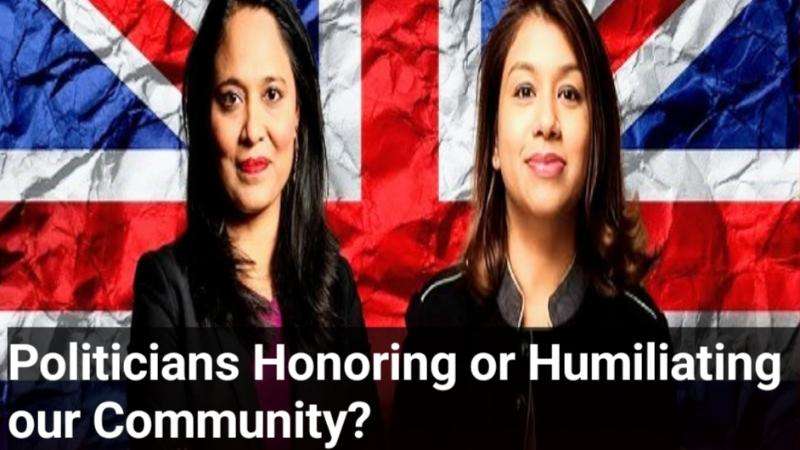In the current political climate, it appears unlikely that any British-Bangladeshi individual will secure a ministerial position within the Labour Party, even if a cabinet reshuffle occurs. The Conservative Party has yet to see a British-Bangladeshi MP elected. Similarly, other parties like Reform, Green, or the Liberal Democrats lack any notable British-Bangladeshi politicians who could become ministers, should these parties come to power alone or in a coalition. Even within Jeremy Corbyn's new party, the list of potential British-Bangladeshi members does not include any high-profile figures who seem poised for a ministerial role.Consequently, the prospect of a British-Bangladeshi securing a spot in the cabinet, whether in the current or the next government, appears slim for at least the next five years.
While becoming a minister isn't the sole measure of leadership, failing to retain a ministerial position due to one's own controversial actions is undoubtedly a profound failure. The recent scandals involving Tulip Siddiq and Rushanara Ali have not only damaged their careers but have also brought significant disrepute to the entire British-Bangladeshi community. Apsana Begum, too, has faced legal challenges related to her housing issues.
A series of high-profile resignations, suspensions, and legal challenges has cast a long shadow over the British-Bangladeshi political community, raising serious questions about the state of its leadership, ethical conduct, and accountability. The recent departures of two prominent Labour government ministers, Rushanara Ali and Tulip Siddiq, have been compounded by the continued suspension of MPs Apsana Begum and Rupa Huq, bringing the community's political representation under intense scrutiny. This cascade of events has exposed a deeper crisis within the community, fueled by internal divisions and a perceived lack of ethical leadership.
Read also: British Bangladeshi community being embarrassed by politicians
Rushanara Ali, the MP from Tower Hamlets for Bethnal Green and Stepney seat and a former Minister for Homelessness, resigned after reports emerged that she had evicted tenants from a property she owned, only to re-list it for rent at a significantly higher price. This move, widely criticized as hypocritical given her ministerial role and public support for renters' rights, led to her swift resignation. Ali's actions, which would soon be made illegal under the new Renters’ Rights Bill her own department was introducing, were seen as a stark contradiction of the very policies she was tasked with championing. In her resignation letter, she maintained that she had followed all legal requirements, but acknowledged that remaining in the role would be a "distraction."
Meanwhile, Tulip Siddiq, the MP for Hampstead and Kilburn, has also resigned from her ministerial post amid a legal storm in Bangladesh. She is now set to face a corruption trial in the country, accused of illegally receiving a plot of land from her aunt, the former Prime Minister Sheikh Hasina, who was ousted from power last year following widespread protests. The Bangladesh Anti-Corruption Commission (ACC) claims the land was acquired through "abuse of power and influence." Siddiq's lawyers have vehemently denied the allegations, calling them a "politically motivated smear campaign," and stating she has never received any official communication about the trial. However, the scandal has intensified pressure on her political standing and forced her to step down from her frontbench role.
Our Politicians never learn from their mistakes! Read our report on Rushanara Ali, published on July 6th: Rushanara Ali: Labour's 'Safe Seat' Now a Shaky Throne?
These issues are not happening in a vacuum. Other British-Bangladeshi MPs have also faced challenges. Apsana Begum, the MP for Poplar and Limehouse, has been under a prolonged suspension from the Labour Party for months after she voted against the government's policy on the two-child benefit cap. While other "rebel" MPs who voted similarly have been readmitted to the party, Begum and two others remain suspended, with critics arguing this signals an intolerance for dissent within the Labour leadership. Begum has defended her vote as a matter of principle, representing an area with high rates of child poverty, but her prolonged suspension has raised concerns about the ability of MPs to truly represent their constituents' interests when it conflicts with the party line.
The current turmoil follows the administrative suspension of MP Rupa Huq in 2022 for remarks about the then-Chancellor, Kwasi Kwarteng, which were widely condemned as racist. Although the whip was eventually restored, the incident contributed to a growing perception of a community whose political representatives are increasingly embroiled in controversy. The original source also notes a long history of British-Bangladeshi political figures facing internal opposition and jealousy from within their own community, citing examples from the 1980s and 90s where talented candidates were allegedly sabotaged.
This recent string of events highlights what many within the community see as a deeper, more pervasive problem: a profound leadership crisis. There is a growing sentiment that some British-Bangladeshi politicians, once elected, become detached from their constituents, serving their own interests rather than the community that elected them. This is often attributed to the fact that many are elected in "safe seats," where they can rely on a large, loyal voter base, particularly within the Bangladeshi community. This safety net, critics argue, can foster arrogance and a lack of accountability.
Furthermore, a palpable sense of internal division and infighting is a significant barrier to the community's collective political advancement. This lack of unity, it is argued, is the primary obstacle to the community's rise in British politics.
Excluding photo sessions, have we seen the four British-Bangladeshi MPs unitedly take a stand for the interests of the British-Bangladeshi community or play a cohesive role during any disaster in Bangladesh?
British Bangladeshi Baroness Uddin, whose full name is Manzila Pola Uddin, has been at the center of a number of controversies.The most significant controversy involved a parliamentary expenses scandal. In 2010, the House of Lords Privileges and Conduct Committee ruled that she had "acted in bad faith" by wrongly claiming over £125,000 in expenses. The claims were for a flat in Kent, which she designated as her main residence, but it was found that she was primarily living in a housing association property in London, only four miles from Parliament. As a result, she was ordered to repay the money and was suspended from the House of Lords until Easter 2012. Although the Crown Prosecution Service decided not to press criminal charges due to a ruling that a peer's "main house" could be one they visited just once a month, the House of Lords committee's findings led to her suspension and a requirement to repay the funds.
Additionally, a recent report from the House of Lords Conduct Committee, published on June 27, 2025, address Baroness Uddin's behavior.
With approximately 1.5 million people of Bangladeshi origin in the UK, the community is a significant political force. However, critics argue that the actions of a few are disproportionately damaging the reputation of the entire group. The current climate begs the question: is there a widely respected, unifying leader who can transcend party lines and heal these deep-seated rifts? And will such a leader emerge in the next five years to steer the British-Bangladeshi community toward a more unified and respected political future? Why should the new generation of British-Bangladeshis enter politics? Who will inspire them? Who will they look up to as their idols? Have our politicians mentored and built new leaders from the backbenches? Can you show us a few examples?Though we may not be able to provide examples of lifting someone up, we can certainly show you instances of pushing them down.








.svg)

